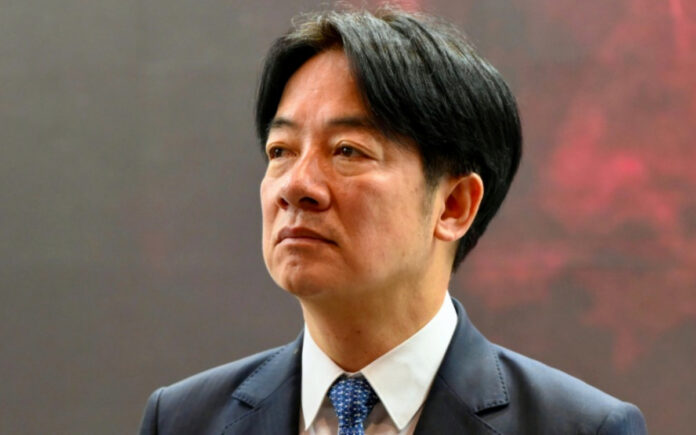Taipei: Taiwan’s President Lai Ching-te reaffirmed his openness to working with China on fostering “mutual understanding and reconciliation” just days after Beijing conducted military drills around the self-ruled island in response to his recent inauguration speech.
Lai was sworn into office on Monday. In reaction to his inauguration, China—claiming Taiwan as part of its territory and labeling Lai as a “dangerous separatist”—initiated extensive military exercises around the island three days later. These exercises involved fighter jets, naval vessels, and coast guard ships encircling Taiwan until Friday night, with Chinese military analysts suggesting they were simulating an operation to seize the island.
In an address on Sunday, Lai highlighted key points from his May 20 inaugural speech, emphasizing that “peace and stability in the Taiwan Strait is a necessary element for global security and prosperity.” He called on China to share the responsibility of maintaining regional stability with Taiwan.
Also Read | Hamas Claims Launch of ‘Major Missile’ Strike on Tel Aviv
“I also look forward to enhancing mutual understanding and reconciliation through exchanges and cooperation with China… and moving towards a position of peace and common prosperity,” Lai stated during an event with his Democratic Progressive Party (DPP) in southern Tainan.
He further warned that “any country making waves in the Taiwan Strait and affecting regional stability will not be accepted by the international community.”
Also Read | Two Faces of Kashmir: Is POK Ready to Re-merge with India Once and for All?
Prior to his inauguration, Lai had made efforts to resume communications with Beijing, which were severed in 2016 after former president Tsai Ing-wen, also from the DPP, took office. Both Lai and Tsai advocate for defending Taiwan’s sovereignty, a stance that has prompted increased military and political pressure from Beijing.
China’s military presence around Taiwan remains significant, with near-daily deployments of naval vessels, drones, and warplanes. On Sunday, two days after the conclusion of the recent drills, Taiwan’s defence ministry reported the presence of seven Chinese aircraft, 14 naval vessels, and four coast guard ships operating around the island within a 24-hour period ending at 6:00 am (2200 GMT Saturday).



